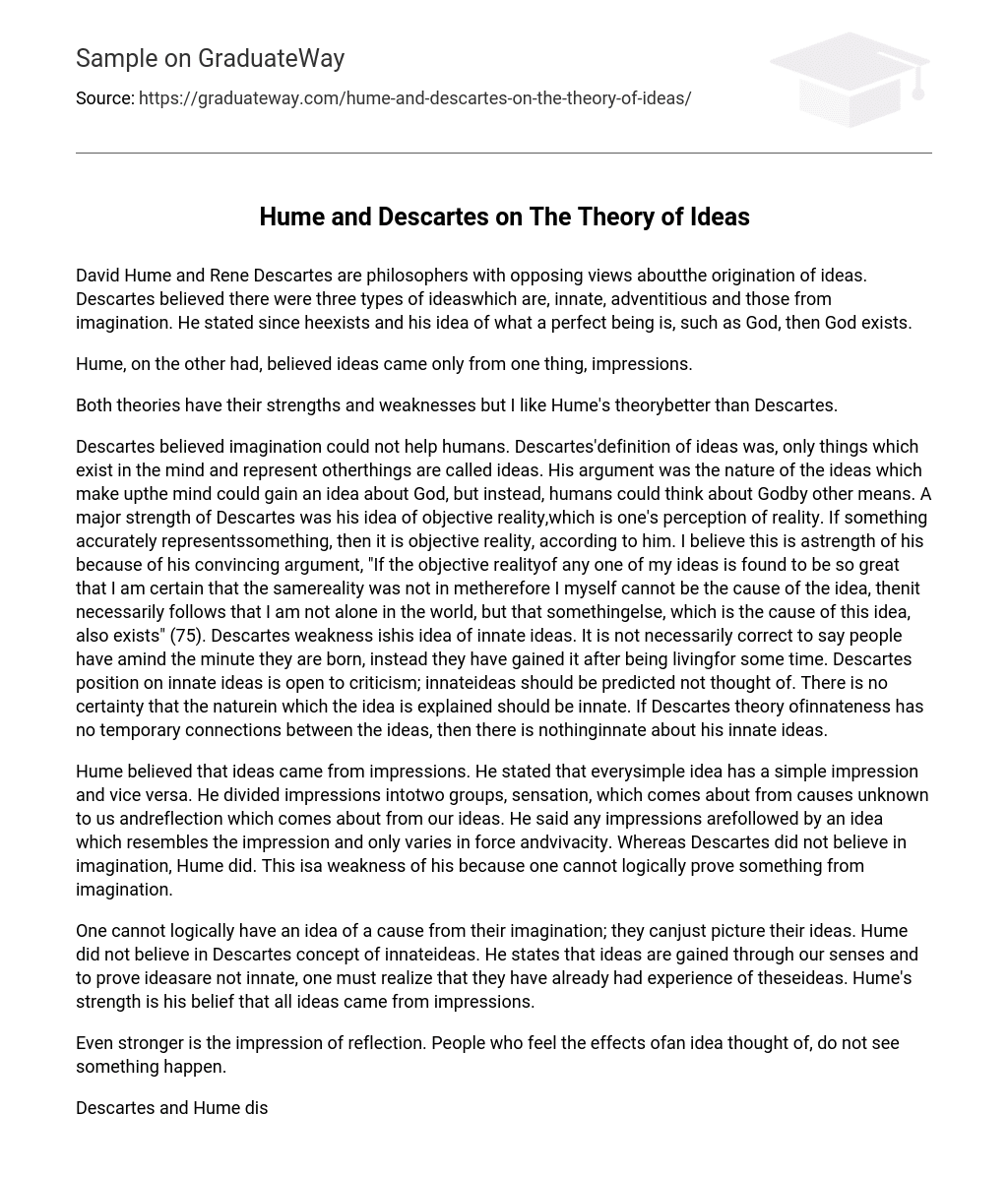David Hume and Rene Descartes are philosophers with opposing views aboutthe origination of ideas. Descartes believed there were three types of ideaswhich are, innate, adventitious and those from imagination. He stated since heexists and his idea of what a perfect being is, such as God, then God exists.
Hume, on the other had, believed ideas came only from one thing, impressions.
Both theories have their strengths and weaknesses but I like Hume’s theorybetter than Descartes.
Descartes believed imagination could not help humans. Descartes’definition of ideas was, only things which exist in the mind and represent otherthings are called ideas. His argument was the nature of the ideas which make upthe mind could gain an idea about God, but instead, humans could think about Godby other means. A major strength of Descartes was his idea of objective reality,which is one’s perception of reality. If something accurately representssomething, then it is objective reality, according to him. I believe this is astrength of his because of his convincing argument, “If the objective realityof any one of my ideas is found to be so great that I am certain that the samereality was not in metherefore I myself cannot be the cause of the idea, thenit necessarily follows that I am not alone in the world, but that somethingelse, which is the cause of this idea, also exists” (75). Descartes weakness ishis idea of innate ideas. It is not necessarily correct to say people have amind the minute they are born, instead they have gained it after being livingfor some time. Descartes position on innate ideas is open to criticism; innateideas should be predicted not thought of. There is no certainty that the naturein which the idea is explained should be innate. If Descartes theory ofinnateness has no temporary connections between the ideas, then there is nothinginnate about his innate ideas.
Hume believed that ideas came from impressions. He stated that everysimple idea has a simple impression and vice versa. He divided impressions intotwo groups, sensation, which comes about from causes unknown to us andreflection which comes about from our ideas. He said any impressions arefollowed by an idea which resembles the impression and only varies in force andvivacity. Whereas Descartes did not believe in imagination, Hume did. This isa weakness of his because one cannot logically prove something from imagination.
One cannot logically have an idea of a cause from their imagination; they canjust picture their ideas. Hume did not believe in Descartes concept of innateideas. He states that ideas are gained through our senses and to prove ideasare not innate, one must realize that they have already had experience of theseideas. Hume’s strength is his belief that all ideas came from impressions.
Even stronger is the impression of reflection. People who feel the effects ofan idea thought of, do not see something happen.
Descartes and Hume disagreed on the topics of innateness and imaginationthat is why neither one is right. Even though Hume’s imagination idea is bad,the rest of his belief is convincing. Therefore, I believe Hume’s theory ofideas is better than Descartes’ argument because he says ideas are based fromimpression and I can relate to this. Whenever I think of something I form ideasof this object based on first impressions. I was not born with ideas because Ihad nothing to base them on when I was born. Therefore, Hume’s theory of ideasis easier to accept and comprehend. Category: Philosophy





